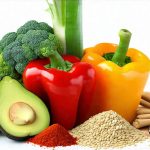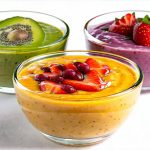The wellness world has embraced “superfoods” with open arms – vibrant goji berries, nutrient-packed chia seeds, exotic acai bowls, and countless others touted for their extraordinary health benefits. We’re encouraged to incorporate these foods into our diets as a pathway to optimal well-being, believing they hold the key to enhanced immunity, increased energy, and disease prevention. While many superfoods are undeniably rich in vitamins, minerals, and antioxidants, the growing trend often overlooks a crucial aspect of nutrition: individual digestive tolerance and gut health. What’s incredibly beneficial for one person can be profoundly disruptive for another, leading to bloating, gas, abdominal pain, and other unpleasant gastrointestinal symptoms.
The assumption that ‘more is better’ when it comes to superfoods doesn’t always hold true. Our guts are complex ecosystems, populated by trillions of microorganisms collectively known as the gut microbiome. This intricate community plays a vital role in digestion, immunity, and overall health. Introducing large amounts or unfamiliar types of food – even those labeled “super” – can upset this delicate balance, triggering inflammation and digestive distress. It’s essential to understand that digestive systems are unique, and what constitutes a healthy dietary addition varies significantly from person to person. This article will explore the potential link between certain superfoods and gut issues, offering insights into why these foods might cause problems for some individuals and providing strategies for navigating this complex relationship. You may find it helpful to learn about building support networks if you’re struggling with gut issues.
The FODMAP Factor & Superfood Sensitivity
Many popular superfoods fall into categories known to be high in FODMAPs – Fermentable Oligosaccharides, Disaccharides, Monosaccharides, And Polyols. These are short-chain carbohydrates that are poorly absorbed in the small intestine and then fermented by bacteria in the large intestine. While fermentation is a natural process essential for gut health, excessive fermentation can lead to gas production, bloating, cramping, and altered bowel habits – symptoms often associated with Irritable Bowel Syndrome (IBS). – Apples, pears, mangoes (often found in acai bowls) are high in fructose.
– Chia seeds and flaxseeds contain soluble fiber which, while beneficial for some, can be problematic for others prone to bloating.
– Garlic and onions, frequently added to superfood smoothies or meals, are rich in fructans.
The issue isn’t necessarily the superfood itself, but rather its FODMAP content and an individual’s capacity to digest it. People with IBS or other functional gastrointestinal disorders may be particularly sensitive to FODMAPs, experiencing significant symptoms even from small amounts. Even those without a diagnosed condition can experience discomfort if they consume large quantities of high-FODMAP foods. It’s important to remember that tolerance levels vary widely; some individuals might handle moderate portions of certain superfoods without issue, while others may need to significantly restrict their intake. Furthermore, the way food is prepared and combined with other ingredients can also influence its impact on digestion. Understanding why your gut feels a certain way can help you navigate these issues.
Beyond FODMAPs, sensitivities to specific compounds within superfoods are common. For example, salicylates, naturally occurring chemicals found in many fruits, vegetables, and spices (including some superfoods like blueberries and turmeric), can trigger digestive issues in salicylate-sensitive individuals. Similarly, histamine intolerance – a condition where the body struggles to break down histamine – can be exacerbated by foods like fermented berries or aged products sometimes included in “superfood” blends. Identifying these individual sensitivities often requires careful observation of symptoms and potentially working with a healthcare professional specializing in gut health. If you find yourself flaring up frequently, making space for healing is crucial.
The Fiber Conundrum: Too Much, Too Soon?
Fiber is widely recognized as essential for digestive health, promoting regularity and nourishing the gut microbiome. However, excessive fiber intake, particularly from unfamiliar sources, can paradoxically lead to significant gut issues. Superfoods like chia seeds, flaxseeds, and psyllium husk are lauded for their high fiber content but introduce a substantial amount of bulk to the diet very quickly. This rapid increase in fiber can overwhelm the digestive system, resulting in bloating, gas, constipation, or even diarrhea.
The key is gradual introduction and adequate hydration. Adding small amounts of fiber-rich superfoods to your diet slowly allows the gut microbiome time to adapt and develop the enzymes necessary for efficient digestion. Simultaneously increasing water intake helps soften stool and facilitates smooth passage through the digestive tract. For individuals with pre-existing conditions like IBS, even small increases in fiber can trigger symptoms, necessitating a more cautious approach. Some people also find that specific types of fiber are better tolerated than others; soluble fiber tends to be gentler on the gut compared to insoluble fiber, which can contribute to bloating and gas. Learning how to train your gut can help with fiber intake.
The Gut Microbiome & Superfood Diversity
The health of our gut microbiome is profoundly influenced by our diet. Superfoods, with their rich array of nutrients, can theoretically support a diverse and thriving microbial community. However, this isn’t always the case. A sudden influx of novel compounds from superfoods can disrupt the existing balance within the gut, favoring certain bacterial species over others. This imbalance – known as dysbiosis – can lead to various digestive symptoms and potentially contribute to chronic health problems.
The concept of “prebiotics” plays a crucial role here. Prebiotics are types of fiber that selectively nourish beneficial bacteria in the gut. Some superfoods, like Jerusalem artichokes and dandelion greens (though not always considered mainstream “superfoods”, they embody similar principles) contain inulin, a potent prebiotic fiber. While this can be incredibly beneficial for fostering a healthy microbiome, it can also exacerbate symptoms in individuals with SIBO (Small Intestinal Bacterial Overgrowth), where excessive bacterial fermentation occurs in the small intestine.
Beyond Superfoods: Personalized Nutrition & Gut Healing
Ultimately, addressing gut issues related to superfoods requires a personalized approach. There’s no one-size-fits-all solution, as individual sensitivities and digestive capacities vary widely. A helpful starting point is keeping a food diary, carefully tracking both the foods you consume and any associated symptoms. This can help identify potential trigger foods – including seemingly healthy superfoods – that contribute to your digestive distress.
Consider these steps: 1. Elimination Diet: Temporarily remove potentially problematic foods (including high-FODMAP superfoods) from your diet for a period of time, then reintroduce them one at a time, carefully observing your body’s response. 2. Focus on Whole Foods: Prioritize whole, unprocessed foods over heavily marketed “superfood” blends. This allows you to better understand the ingredients and potential sensitivities. 3. Support Gut Healing: Incorporate gut-healing practices such as stress management, adequate sleep, and mindful eating. If travel exacerbates your symptoms, consider how to handle travel.
Working with a registered dietitian or healthcare professional specializing in gut health can provide invaluable guidance and support. They can help identify underlying digestive issues, develop a personalized dietary plan, and recommend appropriate testing to pinpoint sensitivities. Remember that true wellness isn’t about chasing the latest food trends; it’s about nourishing your body with foods that genuinely support your individual needs and promote optimal gut health. Also, be aware of seed oils and reactions.


















